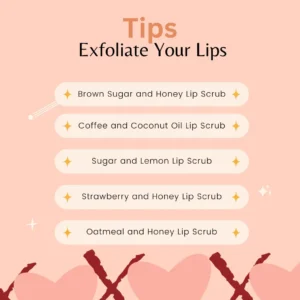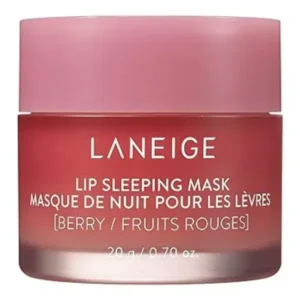Finding the right face wash can be a game-changer for those with acne-prone skin. The key to an effective cleanser lies in its ingredients.
Certain components can help target acne, reduce inflammation, and prevent future breakouts.
In this blog, we’ll explore the top ingredients to look for in face washes that cater to acne-prone skin, helping you choose the best products for a clearer complexion.

Top Ingredients to Look For
Salicylic Acid:
- Benefits: Salicylic acid is a beta hydroxy acid (BHA) that penetrates deep into pores to dissolve excess oil and dead skin cells. It helps prevent clogged pores and reduces acne breakouts.
- Best For: Acne and blackheads.
Benzoyl Peroxide:
- Benefits: Benzoyl peroxide kills acne-causing bacteria and helps reduce inflammation. It also helps to clear out pores and reduce acne lesions.
- Best For: Severe acne and cystic acne.
Glycolic Acid:
- Benefits: Glycolic acid is an alpha hydroxy acid (AHA) that exfoliates the skin’s surface, removing dead skin cells and promoting cell turnover. It helps to reduce acne marks and improve skin texture.
- Best For: Exfoliation and reducing acne scars.
Tea Tree Oil:
- Benefits: Tea tree oil has natural antibacterial and anti-inflammatory properties that help soothe the skin and reduce acne-causing bacteria.
- Best For: Mild to moderate acne and sensitive skin.
Niacinamide:
- Benefits: Niacinamide, or vitamin B3, helps to reduce inflammation, control oil production, and improve the skin’s barrier function. It also helps to even out skin tone.
- Best For: Reducing redness and inflammation.
Hyaluronic Acid:
- Benefits: Hyaluronic acid helps to hydrate the skin without clogging pores. It maintains moisture balance and improves skin elasticity.
- Best For: Keeping the skin hydrated while treating acne.
Sulfur:
- Benefits: Sulfur has antibacterial properties and helps to absorb excess oil and exfoliate dead skin cells. It also helps to reduce redness and inflammation.
- Best For: Oily skin and inflammatory acne.
Lactic Acid:
- Benefits: Lactic acid is another AHA that helps exfoliate the skin, improve texture, and lighten dark spots caused by acne.
- Best For: Gentle exfoliation and reducing pigmentation.
Ceramides:
- Benefits: Ceramides help to restore and maintain the skin’s natural barrier, which can be compromised by acne treatments. They help keep the skin hydrated and protected.
- Best For: Preventing dryness and maintaining skin barrier function.
Zinc:
- Benefits: Zinc helps to regulate oil production and has anti-inflammatory properties that reduce redness and swelling.
- Best For: Managing oiliness and calming irritated skin.
Conclusion
Choosing the right face wash is crucial for managing acne-prone skin. Look for products containing these key ingredients to address your specific skin concerns effectively.
Whether you’re dealing with acne breakouts, excess oil, or inflammation, incorporating these ingredients into your skincare routine can lead to clearer, healthier skin.
For more information on effective acne-fighting products and the best face washes, check out our other blogs.
FAQs
What is the best ingredient for treating acne?
Salicylic acid is highly effective for treating acne as it penetrates pores and dissolves excess oil and dead skin cells.
How does benzoyl peroxide help with acne?
Benzoyl peroxide kills acne-causing bacteria and reduces inflammation, helping to clear acne and prevent future breakouts.
Is glycolic acid useful for acne-prone skin?
Yes, glycolic acid exfoliates the skin, promotes cell turnover, and helps reduce acne marks and texture.
Can tea tree oil be used daily for acne?
Tea tree oil can be used daily, but start with a lower concentration to avoid irritation, especially if you have sensitive skin.
What does niacinamide do for acne-prone skin?
Niacinamide reduces inflammation, controls oil production, and improves skin tone, making it beneficial for managing acne and reducing redness.
Why is hyaluronic acid important in acne skincare?
Hyaluronic acid hydrates the skin without clogging pores, which helps maintain moisture balance and prevent dryness from acne treatments.
How does sulfur treat acne?
Sulfur absorbs excess oil, exfoliates dead skin cells, and has antibacterial properties that help reduce acne and inflammation.
Can lactic acid be used for acne scars?
Yes, lactic acid helps exfoliate the skin and lighten dark spots, aiding in the reduction of acne scars.
What are ceramides and why are they important?
Ceramides restore and maintain the skin’s barrier, helping to keep it hydrated and preventing irritation from acne treatments.
Does zinc benefit acne-prone skin?
Zinc regulates oil production and has anti-inflammatory properties, which can help reduce acne and calm irritated skin.





